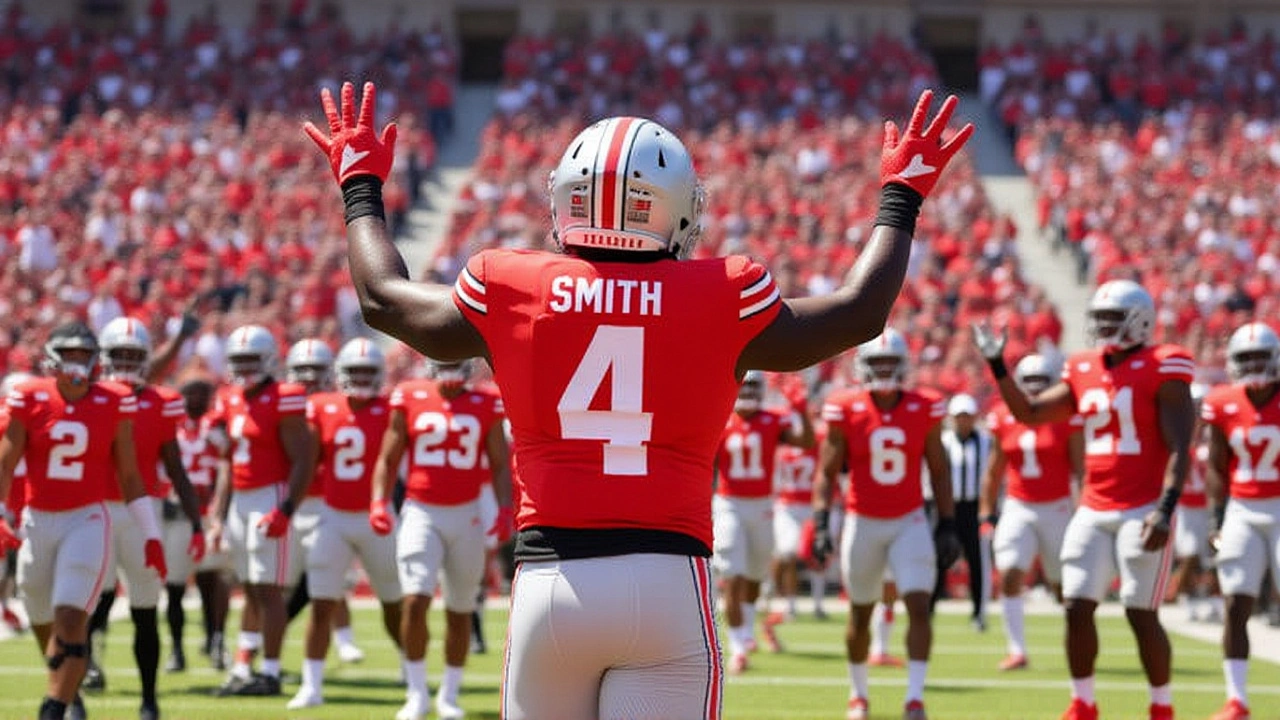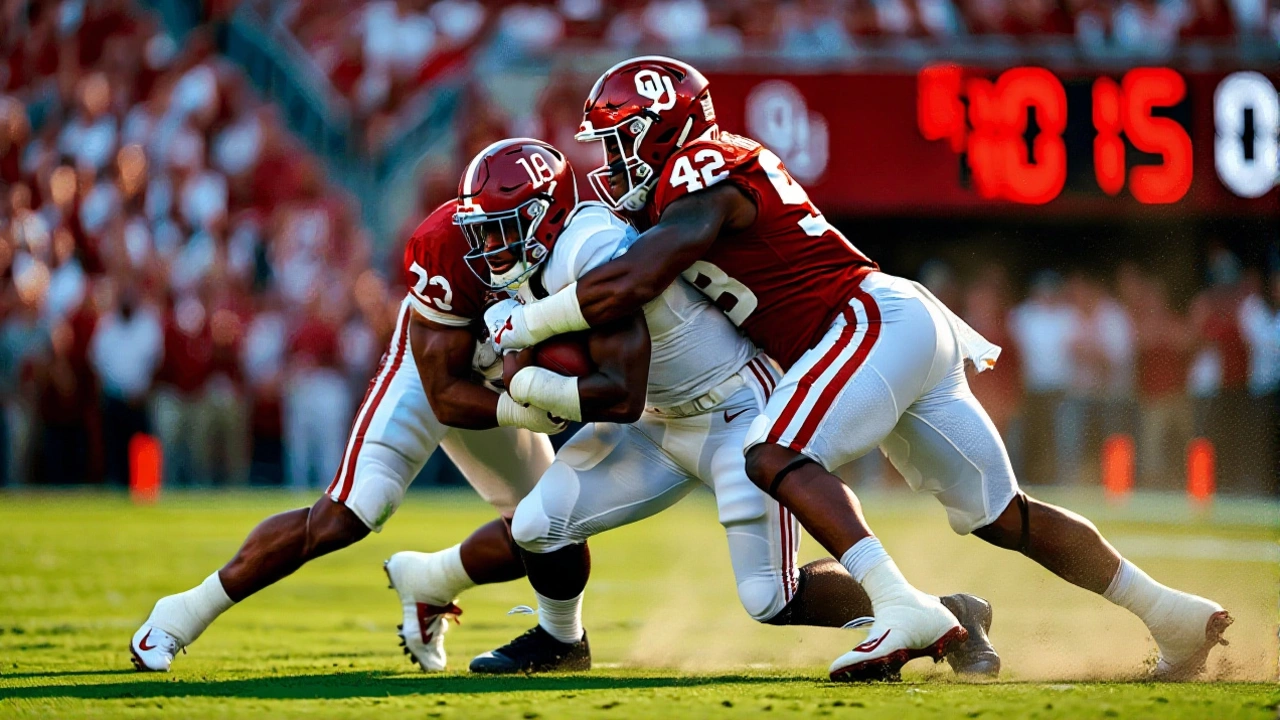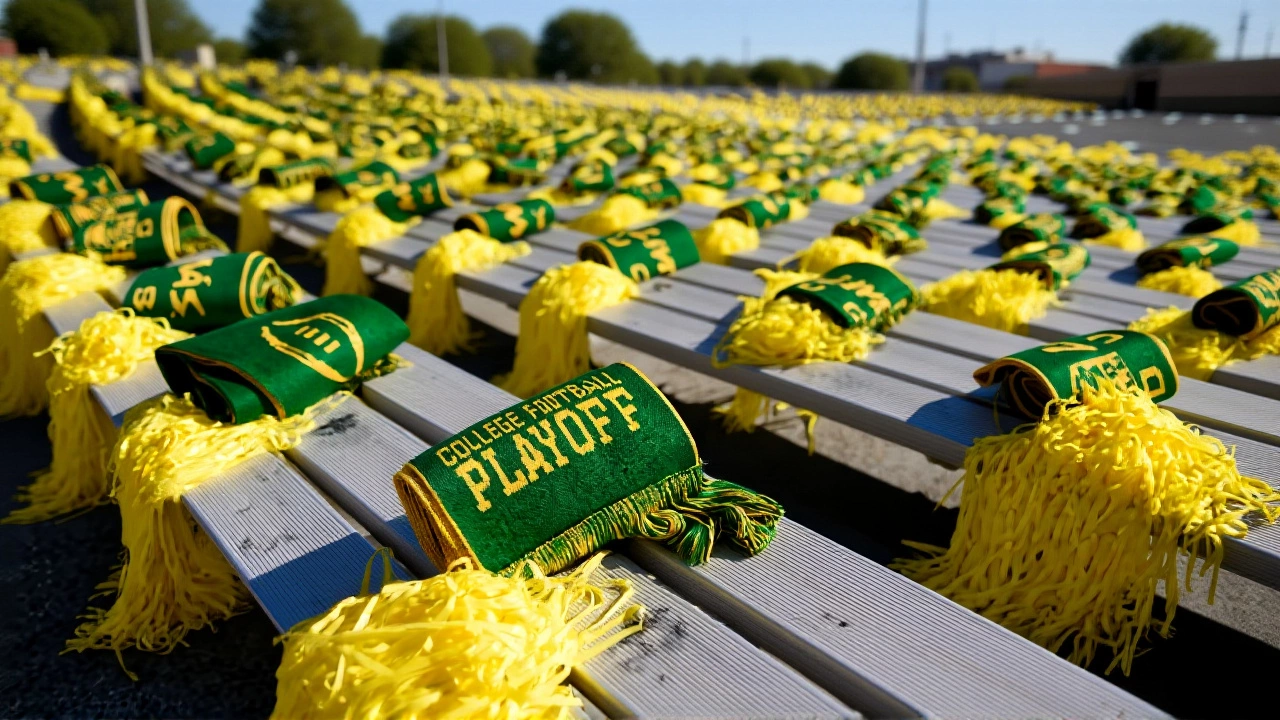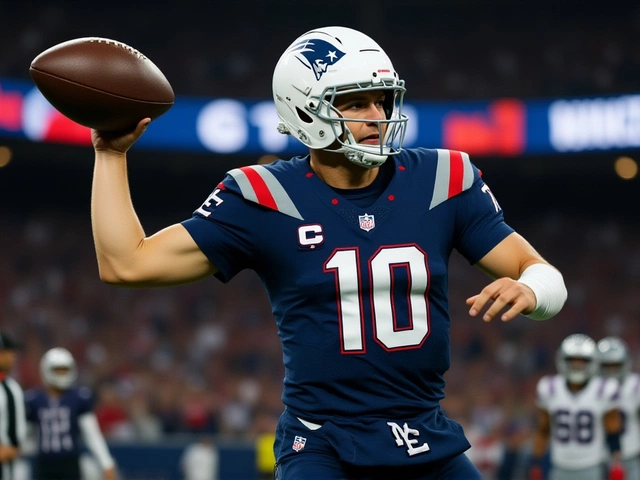The University of Oregon Ducks aren’t just playing for wins anymore—they’re playing for legacy. After a commanding 38-17 victory over the University of Minnesota Golden Gophers on November 14, 2025, at Autzen Stadium in Eugene, Oregon, the Ducks surged to No. 7 in the latest College Football Playoff rankings, released Tuesday, November 18, 2025. It’s their second straight jump in the standings, and with a 9-1 record and 6-1 in the Big Ten Conference, they’re now firmly in the conversation for a playoff berth. The win wasn’t just another checkmark on the schedule—it was a statement. Oregon’s defense held Minnesota to just 218 total yards, forced three turnovers, and didn’t allow a single play longer than 20 yards. That’s not luck. That’s precision.
Consistency Is the New Normal
What makes Oregon’s rise even more remarkable isn’t just this week’s climb—it’s the unbroken streak behind it. Since 2023, the Ducks have appeared in every CFP top-10 ranking. That’s 14 consecutive weeks. Since 2020, they’ve been in the top 25 every single time. Twenty-seven straight appearances. No other program in the FBS can say that. Even during the turbulence of conference realignment, Oregon didn’t just adapt—they thrived. They’re now one of three Big Ten teams in the top 10, alongside No. 1 Ohio State and No. 2 Indiana. And they’re not just hanging on—they’re dominating statistically. Ranked 7th in scoring offense (39.0 points per game), 11th in total offense (475.4 yards per game), and third in total defense (235.4 yards allowed), they’re one of the most balanced teams in the country. But the real standout? Their passing defense. At just 127.3 yards allowed per game, they lead the nation. Opponents can run. They can’t throw.
The USC Gauntlet
Now comes the real test. On Saturday, November 22, 2025, at 12:30 p.m. Pacific Time, the University of Southern California Trojans (8-2, 6-1 Big Ten) roll into Eugene. No. 15 USC isn’t just a rival-turned-conference-mate—they’re a playoff contender with a dynamic offense led by quarterback Michael Penix Jr. (yes, the same one who torched defenses at Washington before transferring). The Trojans average 37.5 points per game and have won five straight. Oregon’s defense will need to be flawless. The Ducks have allowed fewer than 20 points in seven of their nine games this season. Can they do it again against a USC unit that’s scored 30+ in five of its last six? The answer could decide who plays for the Big Ten title.
Here’s the twist: if Oregon wins, they likely clinch a spot in the Big Ten Championship Game. Lose, and they’re still alive—but now they’re counting on other results to go their way. And then there’s the final game: a trip to University of Washington Huskies on November 29. That’s not just a rivalry game. It’s a potential playoff decider. Washington, at 8-2 and ranked No. 18, is hungry for revenge after losing to Oregon last year in a 41-38 thriller. The stakes? A CFP berth. A conference crown. A chance to make history.

Why This Matters Beyond the Field
The Big Ten isn’t just surviving its expansion—it’s thriving. With six teams in the CFP top 25—including Oregon, USC, Michigan, Illinois, Ohio State, and Indiana—it’s now the most dominant conference in college football. That’s a seismic shift from just two years ago, when the Pac-12 was crumbling. Oregon didn’t just join the Big Ten. They became its new heartbeat. Their consistent excellence has redefined what it means to be a West Coast powerhouse in a Midwestern league. And it’s not just about wins. It’s about culture. The Ducks’ 94.1 team grade from Pro Football Focus is fifth-best in the nation. That’s not a fluke. That’s coaching. That’s discipline. That’s depth.
Even the polls reflect it. Oregon is tied for No. 6 in the AP Top 25 and No. 5 in the US LBM coaches poll. The CFP committee doesn’t just look at wins—they look at strength of schedule, margin of victory, and consistency. Oregon checks every box. And now, they’re not just hoping to make the playoff. They’re preparing for it.

What’s Next?
The next 12 days will define Oregon’s season. Beat USC, and they control their destiny. Win in Seattle, and they’re not just in the playoff conversation—they’re a frontrunner. Lose either game, and the door stays open—but the pressure intensifies. The Ducks have been here before. In 2024, they were No. 1 in every CFP ranking. They didn’t make the final four. This year? They’re not just chasing a spot. They’re chasing redemption.
Frequently Asked Questions
How did Oregon improve so quickly in the CFP rankings?
Oregon moved from No. 8 to No. 7 after defeating Minnesota 38-17 on November 14, 2025, while several teams ahead of them lost or barely won. Their dominant defense and consistent performance over the last two seasons gave the committee confidence in their resume. With only two losses among top-10 teams, Oregon’s 9-1 record and top-10 rankings in both offense and defense made them a clear upgrade over teams like Oklahoma and Notre Dame.
Why is Oregon’s passing defense so dominant?
Oregon’s secondary, led by All-American cornerback Devin Neal and safety Travis Hunter, has mastered zone coverage and pressure schemes under defensive coordinator Andy Avalos. They’ve allowed just 17 plays of 20+ yards all season—the fewest in the FBS. Their front seven also generates consistent pressure without blitzing, forcing quarterbacks into rushed throws. Opponents average just 5.3 yards per pass attempt against them.
What’s at stake in the USC game?
A win over USC would give Oregon a 7-1 conference record and likely lock up a spot in the Big Ten Championship Game. It would also eliminate USC’s playoff hopes, making Oregon the only Big Ten team west of the Mississippi with a realistic shot at the final four. A loss, however, opens the door for Oklahoma, Notre Dame, or even a two-loss USC team to leapfrog them in the final rankings.
How does Oregon compare to past powerhouse teams in the CFP era?
Oregon’s 27 straight CFP top-25 appearances since 2020 is the longest active streak in the FBS. Only Alabama (30) and Clemson (29) have longer streaks overall, but those include years when they won national titles. Oregon hasn’t made the final four since 2014, but their sustained excellence under Coach Dan Lanning has made them the most reliable team in the West. Their 94.1 PFF grade is the highest for any non-champion since LSU in 2019.
Could Oregon make the College Football Playoff without winning the Big Ten Championship?
Yes, but it’s unlikely. The CFP committee has historically favored conference champions, especially from power leagues. Oregon would need to finish 11-1 with wins over USC and Washington, and hope that either Ohio State or Indiana loses. Even then, they’d need to jump teams like Alabama or Texas Tech, who have stronger schedules. A 12-1 Oregon team with a Big Ten title is a near-lock. Without it, they’re a long shot.
What’s the historical significance of Oregon’s CFP streak?
Oregon’s 27 consecutive CFP top-25 appearances since 2020 tie them for the second-longest streak among non-traditional powerhouses. Only Alabama and Clemson have longer. For a program that didn’t win a national title until 2011, this level of consistency is unprecedented. It signals a new era: Oregon isn’t just a flash-in-the-pan team anymore. They’re a perennial contender—no matter the conference.





